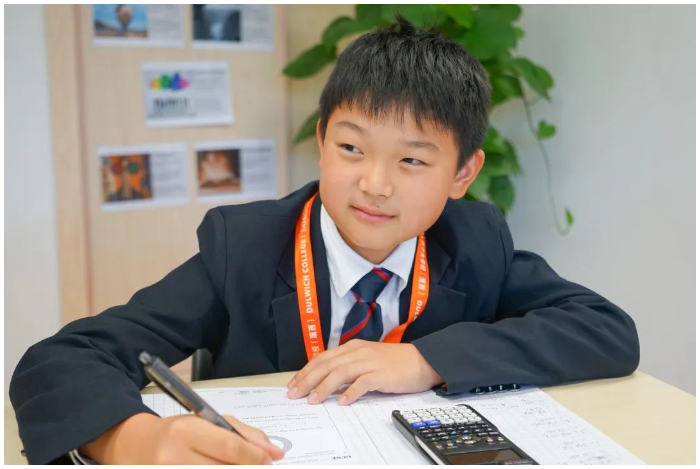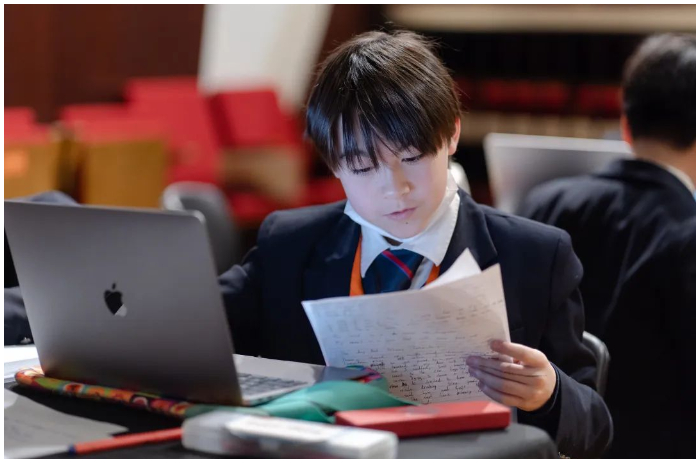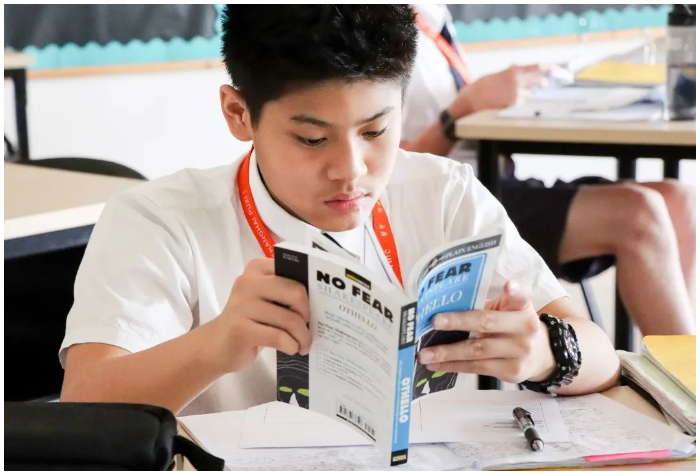Top Tips for Being a Successful Senior School Student
As we look ahead to the new academic year, our students at Dulwich College Shanghai Puxi are excited about making the preparations to continue their educational journey into the next academic year. We, in the Senior School, are delighted and very much looking forward to welcoming our Year 6 cohort this coming September. This is a big - but exciting - change for both your child and for you as parents.
There are many ways in which you can support your child to prepare for this magical time and we have drawn some key recommendations together here to support in that transition. Here are our ‘top tips’ to help support your child in becoming a successful Senior School student.
Building Independence and Establishing Routines
————
The strive for independence can become a trigger for many family disagreements. It is advised that structures are put in place to allow for your child to become more self-reliant, and build confidence in their own abilities. Children will quickly find that with more independence comes more responsibility. They will need to make sure they are prepared for lessons with the right books and equipment, and to ensure they are in the right place at the right time. Where possible, students should pack their bag the night before and ensure they have their uniform ready (and PE kit if needed) before going to bed. Even as a teenager, children thrive off routine; knowing what is happening, who will be at home and what the expectations of them are, will help to support them in their organisation. Some families may choose to use a family calendar, or checklist in the home to share information and expectations. At school, students are provided with a planner, where they can write down homework. They are also provided with key information via our Student Bulletin which contains key information about their week. The planner is checked and signed by the Mentor and parent each week. We know that this will help you to understand, manage and support your child’s week.
Understanding Their Curriculums and Building Connections
————

Many parents find that with the transition from Primary to Senior School their child may become more reluctant to share information about their school day, and ‘what they have learnt’. We strongly encourage parents to familiarise themselves with their child’s curricula, and understand the learning journey they will be undertaking. Each September we host a ‘Year Ahead’ Parent Workshop, and here you will be able to meet the staff who will support your child in the classroom, and find out more about the curricula for each subject they will be studying. Throughout the year you will be able to see the learner guides that are placed in the front of each of their exercise books at the start of a new topic or unit of work, and this will help you to understand the finer details of the syllabuses they are studying. If your child has external tutoring in a subject, we highly recommend connecting their tutor with our specialist teachers to ensure their approaches and provision are aligned and they are able to work as a team.
Make Space and Time to Support Learning at Home
————

As students enter Year 7, they should expect to receive around 1 hour 30 minutes of homework each night, in addition to 20 minutes of private reading. They will also be introduced to a range of study skills and revision methods, and should use these throughout the year to independently review and consolidate their learning. They will need support in managing their after school commitments, and some families choose to move additional tutoring and music lessons to the weekend to ensure they are able to allocate the expected amount of time to their studies, whilst also participating in CCAs and enjoying some relaxation time after a busy day. It is important to find the right environment for your child to complete their homework. Students should have a clear workspace where they can organise their workbooks and have access to stationary and electronic devices as required. For many individuals they will choose to work in their bedroom. Others may need more guidance, to be away from potential distractions, and would work better in a family area such as a kitchen table where an adult can be on hand to support as required.
Managing Electronic Devices
————

At our College we have a personal device policy for Senior School students, where students are expected to bring a laptop to use as required. It is essential that they are aware of the guidelines around using a personal device on campus, and we ask that both students and parents read and sign an electronic device agreement. Whilst it is a valuable tool, at school the laptop is not to be used without permission, and whilst at home, it is not necessary to be used for all homework tasks. For many families, this will be the first time their child has had access to their own laptop, and it can have the potential to cause conflict if agreements around use have not been discussed and agreed upon. We strongly recommend that parental controls are installed as part of the initial set up, and that parents become familiar with their application, to ensure their children are not able to access sites that are not age appropriate. Involving your child in agreeing expectations around the device, such as setting time limits for the games and apps they wish to access, and keeping it out of the bedroom at night, will help to develop an understanding of the boundaries. Throughout the year we offer workshops around screen use and technology via our Parent Academy programme, should you wish to attend and learn more about supporting your child and their use of devices.
Promote a Love of Reading
————

Many parents will know the hours involved in supporting their child in learning how to read, but continuing to expand and refine their capability is invaluable. A confident ability to read helps students to gain knowledge, develop different points of view and understand the people and world around them better. It supports their vocabulary acquisition and language development and is an invaluable asset to possess. At school, students should always have their personal reading book in their bag, and are expected to read 20 minutes a day in their own time. They will be introduced to the Accelerated Reader programme, and as a parent you will be able to log in and become familiar with their ability and their progress. We have a comprehensive catalogue of books they can access via the library, but you may wish to also supplement this at home. Finding texts your child enjoys is key to supporting and developing their enthusiasm for reading, and becoming familiar with the genres they enjoy and themes that are relatable to them will help you to support their interest. Find ways to encourage reading around the house – in any language – perhaps asking them to read the recipe whilst you cook a family meal. Modelling that reading isn’t a chore or a homework task to be completed, and that as an adult also you enjoy relaxing with a book where possible, will support your child in developing great habits that will benefit them in their future.
We hope that our graduating Year 6 students are looking forward to joining the Senior School. We are certainly excited about welcoming them into this new chapter of the school lives.





